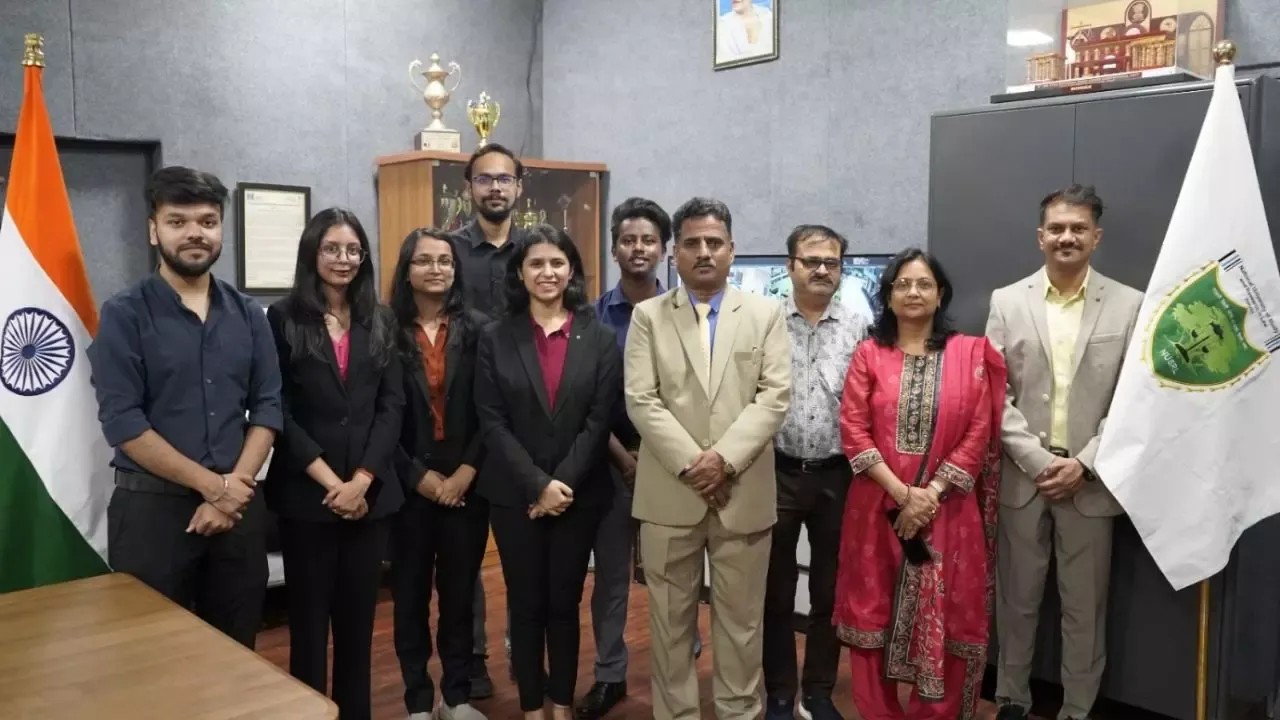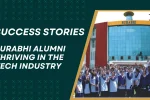JGU Sustainable Development Report 2025: In a significant stride for global academic collaboration, O.P. Jindal Global University (JGU) unveiled its Sustainable Development Report 2025 at the India-Japan Higher Education Forum in Tokyo. This milestone moment came amid discussions on the future of universities, centered around democracy, dialogue, and development across Asia. The event was made more notable by the participation of Japan’s Minister of Education, Culture, Sports, Science, and Technology, who officially launched the report.
The release of the report marks not just an academic achievement, but a diplomatic gesture. It emphasizes the evolving role of education in tackling global issues, such as climate change, inequality, and social justice. It also reflects how JGU is aligning its institutional mission with global sustainable development goals.
JGU Sustainable Development Report 2025
The JGU Sustainable Development Report 2025 is a bold and structured documentation of how the university is embedding sustainability into its core. The report outlines progress in teaching, research, operations, and community outreach—all mapped to the 17 Sustainable Development Goals (SDGs). It is a strategic demonstration of how universities can lead in promoting sustainability through measurable outcomes and inclusive growth.
Overview Table
| Feature | Details |
| Event | India-Japan Higher Education Forum, Tokyo |
| Report Launch Date | June 2025 |
| Launched By | Japan’s Education Minister |
| Key Theme | Universities and Sustainable Development Goals (SDGs) |
| Global Ranking Progress | Improved to 401–600 band in THE Impact Rankings 2025 |
| SDG Achievement | Ranked 88th globally for SDG 12 – Responsible Consumption |
| Institutional Strategy | Integration of sustainability in all operations |
Strengthening India-Japan Academic Ties
The forum served as a platform to reaffirm academic solidarity between India and Japan. With shared democratic values and a joint commitment to innovation, both nations are investing in education as a vehicle for sustainable growth. The Minister praised Indian universities like JGU for shaping globally aware, ethical leaders who are prepared to solve complex global problems.
The event further reinforced the need for student exchanges, collaborative research, and long-term partnerships between institutions in both countries.
A Vision Beyond Borders
JGU’s leadership emphasized that higher education today must transcend national boundaries. The Sustainable Development Report is not merely a record of accomplishments, but a vision document pointing toward a more inclusive, environmentally conscious academic framework. It reflects how a university can become a force for ethical leadership and positive change in a volatile world.
Tangible Academic Recognition
JGU’s dedication has already earned it recognition on the global stage. The university saw a significant leap in the Times Higher Education Impact Rankings, moving into the 401–600 band in 2025. Of particular note is its 88th position globally for SDG 12—Responsible Consumption and Production. This recognition reflects the effectiveness of its campus-wide initiatives, academic programs, and operational changes geared towards sustainability.
Cultural Shift Within the Institution
The report also captures a cultural transformation within JGU. Sustainability is no longer an added responsibility—it has become a guiding principle. Faculty, administrators, and students alike are engaged in projects, policies, and practices that uphold sustainable development. This shared mission has been embedded into courses, research agendas, student life, and even campus infrastructure.
It’s a move from theory to action, making sustainability a lived experience for everyone at the university.
Reimagining the Role of Universities
The Sustainable Development Report argues that the modern university must be more than a knowledge hub. It must serve as a sanctuary for democratic dialogue, a laboratory for solutions, and a platform for justice and equity. JGU’s initiative challenges other institutions to embrace a more responsible and forward-thinking approach to education.
Universities must now aim to inspire action, cultivate compassion, and lead efforts to protect the planet and uplift communities.
Path Forward
JGU is set to expand its global partnerships, especially with institutions in Japan, to further joint research in sustainability, education reform, and social innovation. The goal is to create knowledge ecosystems that are as impactful as they are inclusive.
Future plans also include scaling up student exchange programs, launching collaborative digital learning platforms, and building multi-stakeholder policy dialogues to address common regional and global issues.
Final Thoughts
The unveiling of JGU’s Sustainable Development Report 2025 in Tokyo is a landmark not just for the university, but for academic diplomacy as a whole. It reflects the potential of education to address real-world challenges with purpose and unity. It also underscores the idea that academic institutions must be designed for more than teaching—they must be engines for global progress.
Call to Action
If you are part of an academic institution, policymaker group, or even a student-led organization, explore how your community can integrate the SDGs into education. Read JGU’s Sustainable Development Report 2025 for inspiration and consider forming partnerships for a shared future. Together, through education, we can create a sustainable, just, and inclusive world.
FAQs
1. What is the JGU Sustainable Development Report 2025?
It is a comprehensive document highlighting JGU’s initiatives in sustainability, aligned with the UN SDGs, across research, teaching, and operations.
2. Why was the report launched in Tokyo?
To celebrate India–Japan educational collaboration and promote academic diplomacy focused on sustainability and global citizenship.
3. What are the major highlights of JGU’s sustainability progress?
JGU improved its global ranking in THE Impact Rankings and was ranked 88th for SDG 12, showcasing tangible progress in responsible campus operations.
4. How does JGU promote sustainability on campus?
Through curriculum integration, green operations, research programs, and community partnerships focused on real-world challenges.
5. Can other universities replicate JGU’s model?
Yes, the report serves as a blueprint for other institutions to align with SDGs and drive institutional change toward sustainability.






